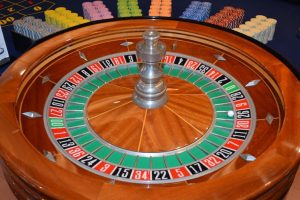Having a sports betting strategy is key to minimizing your losses and making the most of your starting bankroll. However, it can be hard to create an effective strategy given the variables involved in sports betting and the differences between different disciplines.
The good news is that there are basic sports betting strategies and principles which may contribute to better picks and practices over time. But what are examples of basic and advanced betting strategies, and how can applications vary between different sports? Don’t worry we’ll cover everything you need to know before logging into your favorite online sportsbook.
What is a Sports Betting Strategy?
In simple terms, a sports betting strategy represents a structured approach to gambling. By introducing order in terms of how you navigate betting markets and the amounts that you wager, you can negate the unpredictable nature of sports events and minimize your losses over time.
A sports betting strategy also helps you to negate the house edge that favors sportsbooks partially. Remember, online betting sites typically apply a minimum 10% commission (or ‘vigorish’) on the odds that they set, affording them a nominal edge across all moneylines, point spreads and over/under markets.
To provide some context, let’s say that two bettors wager $11 on opposite sides of an NBA game between the Brooklyn Nets and Boston Celtics (at odds of 11/10). This creates a total risk of $22, while the winner will bank a return of $10 and recoup their initial stake ($21 in total).
In this instance, the house keeps $1, and if you divide this profit by the $22 staked and multiply the remaining value by 100, you can see that the house retains a 4.55% edge. So, it’s crucial that you recognize this and develop a betting strategy to help counter it.
50% Welcome Bonus Up to $1,000 50% Welcome Bonus Up to $1,000
Why Use a Betting Strategy?
As we’ve touched on, an informed sports betting strategy helps to introduce order and logic when wagering on unpredictable events and matches. While the unpredictability of sports like football and soccer help to make them so popular among viewers, it also makes profitable betting incredibly difficult.
A strategic approach also encourages you to assume greater control over various aspects of sports betting, such as your stake amount, the wager types that you deploy and the strategic use of free bet offers. For example, a betting strategy encourages the strategic use of wagers that can create value when engaging in match betting. Instead of just backing a heavy favorite at restrictive odds, for example, you can use point spread bets to access much longer prices.
Or, you could combine several different match favorites in a multi-game parlay, enabling you to back each one at a single, extended price. When used successfully, such strategies can turn the odds in your favor and directly counter a sportsbook’s house edge.
Professional sports bettors often employ betting strategies like the ones we’ve mentioned to build their bankrolls and make millions of dollars. While you may not be at the pro level yet, betting strategies offer a different perspective on sports betting and can help you not only increase your winnings, but may even add to the fun!
Basic Sports Betting Strategies
We’ll start by addressing ‘basic’ sports betting strategies, which are single building blocks that each enable you to take control of your wagers and selections.
By grasping these, you can simultaneously minimize the risk of loss while accessing enhanced betting odds. You can also lay the foundation for more advanced betting strategies, which we’ll touch on a little later on.
Bankroll Management
You should always set aside a fixed sum of money for the purpose of sports betting. This should be an amount that you can comfortably afford to lose, and this is commonly referred to as your ‘bankroll’.
Bankroll management describes the organization and deployment of your sports betting budget, usually over a predetermined period of time. This is fundamental when you learn how to bet smart on sports, as it encourages you to develop a disciplined and strategic mindset and plan your betting activity in more detail.
This can be especially useful when placing multiple bets during a particular timeframe or competition. For example, let’s say that you wanted to set a $2000 bankroll for the entire NFL regular season, and wager on approximately five matches each week. You could calculate your bankroll as follows:
- Take your starting bankroll of $2000 and deposit this or set it aside
- Divide this amount by the number of NFL game weeks ($2,000 / 18). This creates a weekly sports betting budget of $111.11.
- Then divide this sum by the number of matches you want to bet on ($111.11 / 5). This establishes a single betting unit of $22.22 to be deployed on each game.
More generally, try to ensure that individual stakes never exceed 5% of your bankroll. This lets you withstand losses more effectively and gives you a little wiggle room to increase stakes when needed!
Understanding How Odds Work
The comprehension of odds is also crucial to any successful betting strategy. This is because odds can be used both to calculate your potential return and the implied probability of a particular outcome occurring.
Here in the US, you’ll typically encounter so-called “American odds”. This is one of three major odds formats that you’ll encounter online, while they combine three-digit numbers with either a ‘minus’ or a ‘plus’ sign. The former is indicative of a betting favorite, while the accompanying number tells you exactly how much you’ll need to stake to win $100.
Conversely, the plus sign denotes a betting underdog and lets you know how much you’ll win for every $100 stakes. So, if you successfully backed the Chicago Bulls to upset the Cleveland Cavaliers in the NBA at pre-game odds of +325, a $100 bet would unlock a return of $325.
When using American odds to calculate implied probability, there are two separate equations to consider depending on whether you’re backing an underdog or a favorite. For example:
- For Positive Odds: (100 / (odds + 100)) * 100
- For Negative Odds: ((odds * -1) / ((odds * -1) + 100)) * 100
Using the same example of betting on the Cavaliers vs the Bulls, we can see that the latter’s odds of +325 imply a 23.52% probability of them winning (100 / (300 + 100) * 100). Alternatively, you can back the Cavaliers at a price of -360, suggesting that they have a 78.26% of prevailing: ((-360 * -1) / ((-360 * -1) + 100)) * 100).
This understanding can help you to identify really good value bets, and hopefully set your stake amounts accordingly!
Search for the Best Betting Lines
This may sound obvious, but it takes time and effort to compare markets and the best betting lines ahead of a particular sporting event. However, this underpins most successful sports betting strategies, as the best odds translate into optimal returns when you wager successfully!
Of course, you can also seek out enhanced or guaranteed odds promotions (where available) to further ensure that you’re accessing competitive prices. Over the course of the season, line shopping can lead to incremental and consistent gains that really boost your bankroll.
Early Bets Secure Early Odds
Wagering early can also unlock enhanced odds and higher potential returns. This is especially true when dealing with futures markets, which often open well in advance of an event reaching its conclusion and may include a number of potential winners. This is why it’s important to always check your preferred offshore sportsbook for the first sign of futures betting markets.
For example, if you were to bet in February on the NBA Championship winner, you’d be able to pick from a huge field of contenders. This translates into much longer odds, which typically shorten for the favorites during the playoffs and as the number of potential winners dwindles.
While the price of less fancied teams may also ‘drift’ over time and create more appealing odds, this suggests that such sides aren’t being heavily backed and are far less likely to win. So, if you intend to back betting favorites at the best possible odds (which is a universally effective betting strategy), wagering early in some instances is highly recommended!
Avoid Extensive Parlay Bets
While it’s accepted that informed and strategic parlay betting can create value in match wagering, this is also an inherently risky strategy. After all, each of your same or multi-game parlay picks must be successful for the bet to pay out, so the risk of loss increases in line with both your number of selections and potential returns.
If you were going to wager on the next Premier League gameweek as a soccer fan, for example, there are 10 match outcomes that you could include in a multi-game parlay. However, successfully picking 10 winners in a single game is incredibly difficult and unlikely, and it would take considerable time to research the relevant data and team statistics.
Instead, it’s important to avoid extensive parlays where possible by capping your number of picks at between four and six, depending on your chosen sport or event. Similarly, try to prioritize superior teams and short-price favorites where possible (such as Manchester City and Liverpool in the EPL), as this increases your chances of success while still allowing you to make a profit.
Embracing Available Data
‘Study the form’ may be one of the most generic pieces of sports betting advice imaginable, but accessing and studying data can be key to a successful wagering strategy. The key is identifying the most relevant datasets and statistics, depending on your chosen sport and the outcomes you intend to back.
In the NFL, for example, you can access online weekly team rankings that include a huge number of datasets. One of the most telling is the ‘Against the Spread’ metric, which indicates how teams are faring in relation to the point spread set by individual sportsbooks.
This is insightful when engaging in moneyline or point-spread betting. For example, the Baltimore Ravens outperformed the point spread by +7.6 points through 2023 while they covered the spread 63.2% of the time. By tracking this data through the season, you can effectively gauge team performance and make more informed bet selections.
Remember to identify the key datasets for each sport or league and multiple snippets of information to help arrive at a decision.
Advanced Sports Betting Strategy
If you consider yourself to be a more seasoned bettor, you may feel ready to embrace more advanced sports betting strategies. These can lead to further gains and even guarantee nominal profits in some instances, although they’re slightly more complex and difficult to execute sports betting techniques.
Hedging Bets
We all use the term “hedging your bets” colloquially, in instances where we avoid making a decision as we cannot decide which one is right. This term has a slightly different meaning in sports betting, however, as it involves a strategic decision that looks to provide optimal coverage of a specific match or event.
More specifically, to ‘hedge’ a bet is to place an opposite wager that minimizes your net loss or delivers a small (but guaranteed) profit. Perhaps the most straightforward example occurs if your first two picks win in a three-team parlay. To guarantee a return, just hedge the third leg of the parlay with a specified stake amount that reflects your desired profit.
So-called “matched betting” is another strategy that allows you to hedge bets. For example, when wagering on an NBA matchup between Orlando Magic and the New York Nicks, you could ‘lay’ a back bet on Orlando to win and simultaneously cover all potential match outcomes.
You can do this at a designated betting exchange, while you can guarantee a profit by backing both outcomes at the same odds and making use of one or more free bet offers.
Create Your Own Betting Lines
If you’ve really earned your stripes as a sports bettor, you can also create your own betting lines at sportsbooks. One way to achieve this is by buying or selling points, based on your knowledge of the two competing teams or detailed analysis of the ATS numbers and similar metrics.
When you ‘buy’ points in sports betting, you’re able to effectively shift the line and access enhanced odds. Sure, this is in exchange for an incrementally higher stake, but it can also increase your chances of winning and banking a return.
If you were backing the San Francisco 49ers to win in the NFL as a -7.5 favorite, for example, you could buy a point and move the line to -6.5. If you were backing the 49ers against a huge betting underdog like the Arizona Cardinals, you could also sell points to create enhanced odds and significantly higher returns.
Understanding Hooks in Point Spread Betting
The half-point or ‘hook’ may seem like a small detail in sports betting, but it’s actually a huge tool in the bettor’s armory. Half points are used in point spread betting to eliminate the draw as a potential outcome, theoretically increasing your chances of placing a successful bet.
Using the previous example of backing the 49ers to defeat the Cardinals with a point spread of -7.5, the former would have to win by eight points to secure a payout. When backing the Cardinals with a spread of +7.5, they just need to lose by seven points or less to cover the spread.
You can also buy the hook in a spread, once again altering a betting line in exchange for a slightly higher stake. So, you could theoretically back the 49ers at -7 points, potentially creating extended odds in the process.
Contrarian Betting Strategy
The contrarian betting strategy is exactly as it sounds. More specifically, it’s a strategy that involves betting against the public or popular sentiment, based on the notion that the average bettor is uninformed and biased towards specific outcomes or markets.
It may also assume that bettors are placing emotive wagers on their favorite sides, causing the most supported teams to carry a disproportionately short price (especially in the most popular sports). So, in certain instances, there’s value in going against the grain and betting on alternative and higher priced outcomes.
Central to this sports betting strategy is the analysis of ‘public money’. This describes the amount of money that the general public have wagered on a specific outcome, with this having a direct impact on odds and how they fluctuate over time.
So, if your analysis suggests an outcome that goes against the flow of public money, you can bet at enhanced odds and unlock far better returns.
Cashing Out Early
Most sportsbooks enable you to cash out before bets have been settled, although the T&Cs deployed by each operator may vary wildly. Some allow particularly early cash outs, for example, which can help you to minimize loss in the event of wagers going awry.
Obviously, timing is key when cashing out early, especially when wagering in-play on high-scoring and fast-paced sports such as basketball. However, this affords you more control over your active bets, and allows you to contend better with the unpredictable nature of sports! Conversely, this is why live betting has become so popular amongst bettors.
For example, let’s say that you backed the Boston Celtics to defeat the LA Lakers with a spread of -4.5 points (at pre-game odds of -110). If you staked $100, you’d be in line to win $90.91 if the Celtics covered the spread, but you quickly find that Joe Mazzulla’s side are up against and down by 10 at the beginning of the fourth quarter.
Suddenly, the prospect of a Celtics win has diminished, while the chances of them prevailing by five points or more are negligible at best. At this stage, your bookie may offer an early-cash out option that allows you to recoup a percentage of your stake, which may be considerably smaller than your payout in event of a win but far better than losing the full $100.
However, when using some bonuses and promotions offered by sportsbooks, it’s possible that cashing out early won’t be an option. Make sure to read the terms and conditions before placing your wagers!
Become an Expert
Experts sport bettors are simply individuals who boast extensive knowledge of specific disciplines, teams, and players. They subsequently leverage this to identify and create value in published odds, while many such bettors hone their skills over time.
So, if you’re an avid NFL or NBA fan and have extensive knowledge of these leagues, you have all the tools you need to become an informed and strategic bettor. The key is to start slowly and scale your efforts in line with increased success and experience, while also identifying the best resources to help guide you on your journey.
Here at ReadWrite, for example, we offer objective information and insight across a broad range of sports. We also publish informational articles that help you to get to grips with the intricacies of sports betting and strategies such as bankroll management.
If you’re just getting started, we’d urge you to check out our comprehensive sports betting glossary and understand some of the most widely used terms.
The Difference Between Sports Betting Strategies and Sports Betting Systems
Often, you’ll notice that the terms ‘sports betting strategies’ and ‘sports betting systems’ are used interchangeably.
This is understandable but wholly unhelpful, as these describe two very concepts in the world of sports betting. For example, a sports betting system describes a number of tested rules, methodologies and principles that you use when placing bets, such as your starting bet unit.
Conversely, your sports betting strategy provides an holistic and overarching approach to minimizing losses and optimizing returns over time. So, you may use one or more betting systems (such as matched betting) as key components of a much broader strategy across different sports.
$750 Sports Welcome Bonus $750 Sports Welcome Bonus
Best Betting Strategy by Sports
Of course, the key systems and sports betting strategies that you deploy will vary wildly from one discipline to another. Here’s our take on some of the best sports betting strategies for specific categories and leagues.
NBA Betting Strategy
You can access some detailed data when betting on NBA matches, including real-time public money information and the percentage of bets placed on specific teams. Therefore, betting against the public can be a viable strategy here, particularly given the popularity of the NBA and the number of emotive wagers placed by fans.
To do this successfully, you’ll need to monitor initial betting lines and observe their movements over time, while using ATS and similar datasets to identify where the public may have gotten it wrong!
MLB Betting Strategy
Over/under betting is particularly popular when wagering on baseball and the Major Baseball League (MLB). This is especially true if the pitching matchup sways you in a particular game, while you can fare particularly well by targeting games with significantly high over/under lines (such as +7.5 lines).
High-scoring games can also favor betting underdogs, which may unlock high-value moneylines and point spreads, too. Much will depend on your individual match analysis, while combination betting and parlays may also prove valuable in some instances.
NFL Betting Strategy
We’ve already touched on how NFL bettors can access weekly rankings based on how they’ve performed in relation to covering the spread set by bookies. So, point spread betting can be particularly effective in the NFL, as you can use past performances to identify the best value spreads and set optimal stake amounts. The top NFL betting sites should offer up-to-date lines, but always shopping around is important.
This also helps to create value when betting on NFL matches. Often, matches are incredibly competitive and difficult to call, while bookmakers are known to boast a 50.3% when covering the spread.
NHL Betting Strategy
Home-field advantage is a key consideration in any sports betting strategy, but this varies from one sport to another. Interestingly, just 59% of NHL matches are won by the home side, which highlights the competitive nature of the league and how open, free-scoring games can lead to surprise results.
This makes the practice of hedging bets particularly effective in the NHL. This way, you can strategically deploy free bet offers and cover all potential match outcomes at the same odds, enabling you to bank nominal (and, most importantly, guaranteed) profits throughout a season.
Soccer Betting Strategy
On the subject of home-field advantage, it’s soccer teams that are most likely to win in front of their own fans. This trend is particularly prevalent in the MLS, where a staggering 69.1% of all games are won by the home team.
So, you should definitely factor this into your weekly picks while paying close attention to the respective home and away forms of competing teams. Where appropriate, you can also execute point spread bets to handicap betting favorites and unlock enhanced odds, but this option should only be used sparingly.
Golf Betting Strategy
Golf is quite a unique sport from a betting perspective, but there are a couple of wagering strategies that you can use to achieve a competitive edge.
Firstly, aim to study specific courses and the past performances of players at selected venues. Some tracks favor big-hitting and driving players, for example, whereas others tend to encounter challenging weather conditions and suit artful professionals or those with a more rounded skillset.
Secondly, leverage the value in futures odds by betting early and spreading your stake across several potential winners. Just be sure to deploy your stake in a way that guarantees at least some level of profit while tailoring your betting units to suit the odds of each particular outcome.
125% Deposit Bonus - Up to $1,250 to Bet on Sports 125% Deposit Bonus - Up to $1,250 to Bet on Sports
Responsible Sports Betting
As you can see, no single sports betting strategy guarantees long-term success. Also, no strategy or system can completely negate the unpredictable nature of sports events and matches, so you’ll always incur the risk of loss as a bettor. Responsible gambling is imperative to a fun and exciting sports betting experience.
This is why disciplined bankroll management is a key facet of successful sports betting strategies. After all, it caps the amount that you wager at an amount you can afford to lose over a specified period of time, while you can also use each sportsbook’s daily, weekly, and monthly deposit limits to manage this practically.
However, if you find yourself betting outside of your means or chasing losses, your first call should be to contact the National Problem Gambling Helpline. You can call them directly at 1-800-GAMBLER or visit their official website to learn more about their purpose and how they can help you overcome your compulsion.






























